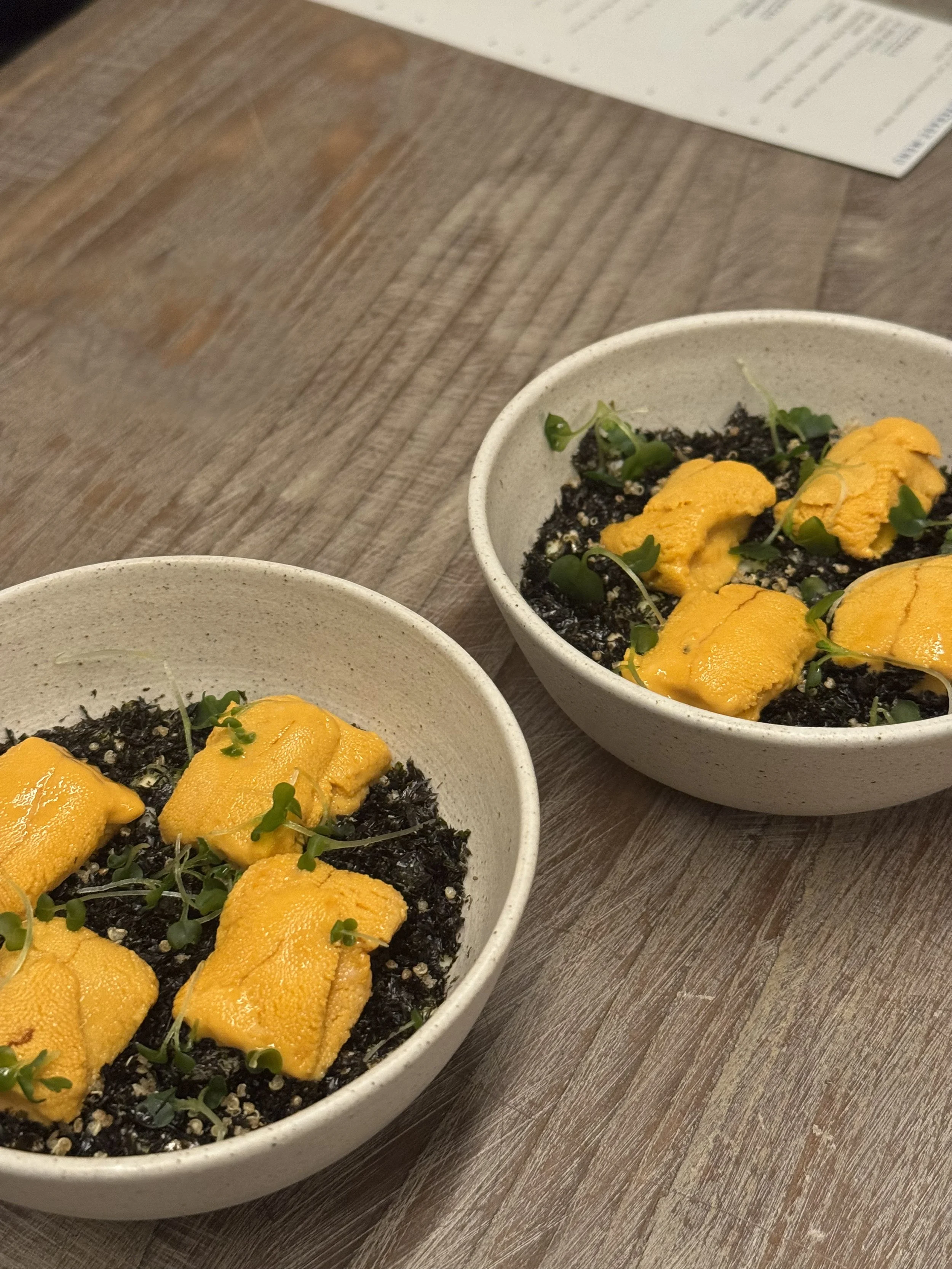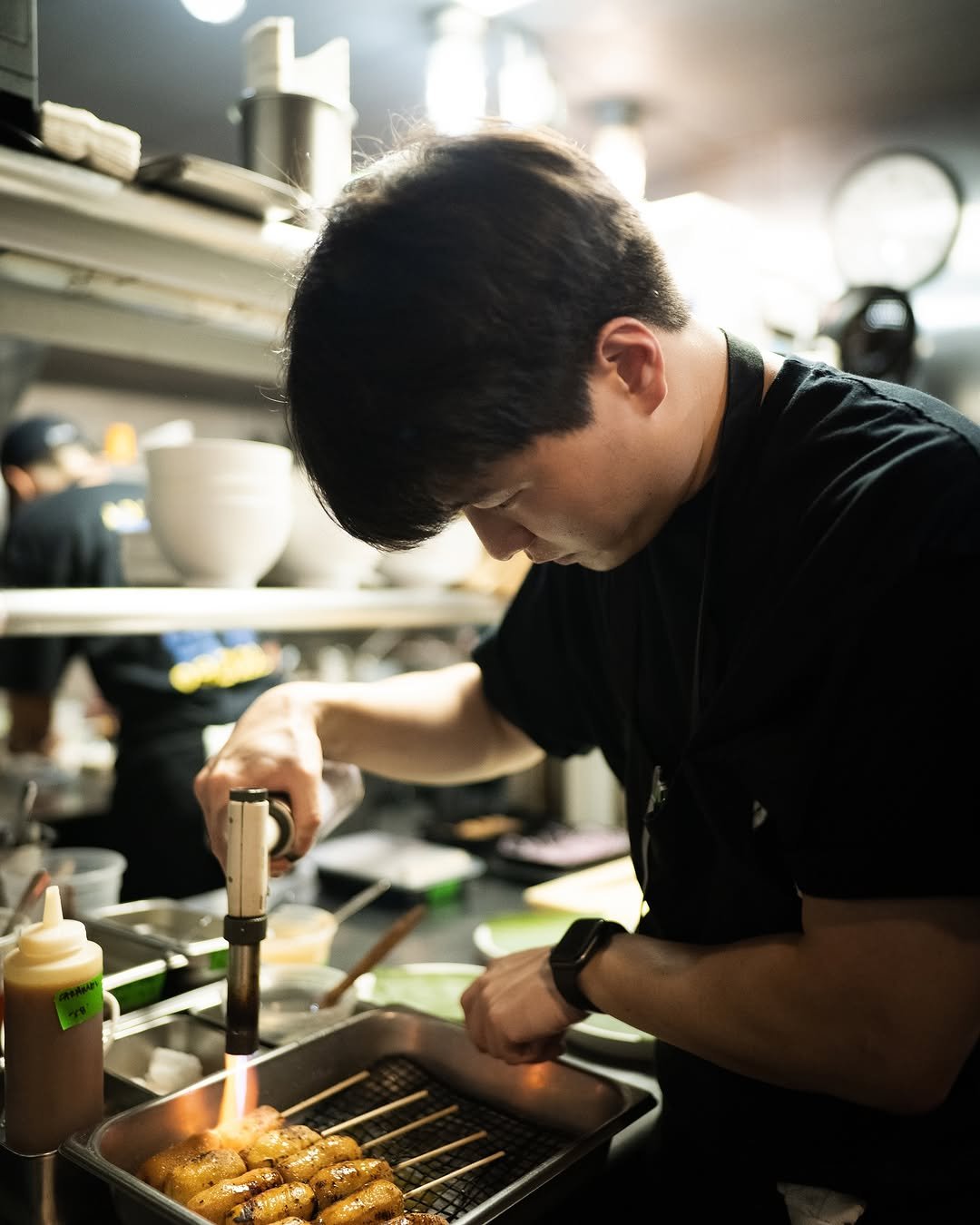
From Seoul to New York: Chef Inwoo Ko on Culinary Journeys and Korean Food’s Future
Inwoo Ko is a rising Korean chef whose culinary journey has taken him from Seoul to Toronto to New York, and soon back to Korea. After years of mastering Italian and Korean techniques abroad, he is preparing to lead a new restaurant that blends Korean flavors with global influences. In this interview, Ko reflects on cultural adjustments, his philosophy of cooking, and how he hopes to represent Korean cuisine on an international stage.
Park: Congratulations on your big move! Are you excited to go back? How long has it been since you were last in Korea?
Ko: Yes, I’m definitely excited to go back. It’s been almost four years since I came to New York. It’s such a huge opportunity for me to be able to open a restaurant with a major company.
Park: Can you tell me about the new restaurant you’ll be leading?
Ko: Yes, I’ll be head chef at a restaurant in Korea with a European vibe and an Arabic concept. It’s rooted in Korean cuisine but incorporates techniques from French, Italian, and Asian cooking… We like to showcase worldwide cuisine.
Park: But will you miss New York?
Ko: Oh, absolutely. I’ll definitely miss New York. I love it here.
Park: So when you’re back in Korea, who’s in charge of the kitchen at home — you, or your private-chef mother?
Ko: At home? Definitely my mom. She’s the head chef there.
Ko: [I cook for them] only during family gatherings, like Thanksgiving. Cooking for my mom always makes me nervous, even though she’s not a professional chef. She has a stronger voice, so I have to follow her lead — even when I think my food tastes better! (laughs)
Park: I know you left Korea to master Italian cuisine. Interestingly, when I’m back in Korea, I always crave Italian food. What do you crave the most when you’re in Korea, and when you’re in New York?
Ko: In Korea, I craved tacos the most — they’re just on another level here compared to Korea. In New York, I crave seafood the most. Actually, the first thing I’m going to eat when I go back to Korea is seafood.
Park: How did attending culinary school in Canada shape your path in New York?
Ko: Culinary school can be controversial in this industry. Some think it’s a waste of time and money. I both agree and disagree. For me, I got a lot out of it because I was curious, worked hard, and built strong connections with chefs. Others didn’t take it as seriously. So I think it depends on how you use the opportunity.
Park: Why did you choose culinary school in Canada rather than Korea or elsewhere?
Ko: At first, I looked into Europe, but the schools there didn’t offer degrees. I also considered Australia and CIA (Culinary Institute of America), but CIA was way too expensive. Then I found the school in Toronto, which was about a quarter of the price of CIA. It was still expensive, but much more doable.
Park: Was that your parents’ idea for you to look beyond Korea?
Ko: Yes. They wanted me to think big, not be stuck in Korea.
Park: When you first arrived in the States, what was the hardest adjustment, both personally and professionally?
Ko: The cultural differences were tough. Every kitchen environment is unique, and I had to adjust to that. But personally, being alone in a new country with no family or friends was the hardest part.
Park: How does Korean cooking culture compare to Canadian and American cultures?
Ko: In Canada, I was surprised to see a lot of wild game — bear, elk, things you’d never see in the US. Canada and the US share similarities, but the US has a more diverse food culture overall. Korea, by contrast, uses a lot of fermentation and is very seasonally driven. That’s one of its unique characteristics.
Park: Do you feel pressure to represent Korean cuisine, especially to non-Korean diners?
Ko: Yes, definitely. Since I work at a Korean restaurant in New York, I feel a responsibility to showcase Korean cuisine. But I see it as a positive challenge.
Park: How do you balance Korean cooking techniques with New York diners’ expectations?
Ko: At first, I tried to adapt to American palates. But now, I focus more on Korean flavors. There’s a saying in Korea: “What’s Korean is most universal.” So I try to present authentic Korean flavors instead of diluting them.
Park: That’s powerful. So, how do you define Korean cooking techniques?
Ko: Fermentation is key. Also, Korea doesn’t rely heavily on ovens. And there are many varieties of soy sauce with unique uses. Those, I think, are some of the most distinct techniques.
Park: Has working in New York changed what “authentic” Korean food means to you?
Ko: Yes. Authentic food evolves. Some dishes we now call traditional, like certain chicken dishes, didn’t exist 100 years ago. Food culture is always changing, and I think it will continue to evolve.
Park: Do you feel like you’re translating Korean culture for your diners?
Ko: In a way, yes. For example, when we serve galbi, we explain the marinade and cooking techniques so customers can understand. That’s part of our role — to educate as well as feed.
Park: What kind of experience do you want diners to have when eating your food?
Ko: I want them to feel like they’re having an experience, not just a meal. Like going to a concert — food is the medium that enhances the connection between people.
Park: When creating new menus, what’s most important to you?
Ko: Seasonality. I start with what’s in season, then build around it with proteins and complementary ingredients. I always try to include a Korean touch, while keeping the flow of service practical.
Park: Do you aim more to honor tradition or push toward the future?
Ko: Both, but I lean toward pushing forward. Diners always crave new experiences, so while I respect tradition, I also want to innovate.
Park: Where do you see yourself in 10 years?
Ko: Still cooking — hopefully with my own restaurant. I’d like to be an owner in the US. Korea’s market is smaller and more complicated, but the US has more opportunities. Whatever cuisine I do, pasta will definitely be on the menu.
credit: @atoboynyc
